Did you know playing card games or board games can help your brain? A 2017 study showed these activities are good for older adults’ brains. This discovery shows we can improve our minds with fun, simple exercises.
Brain exercises are a great way to improve memory and thinking. Activities like crossword puzzles and learning new things keep our minds active. This can help protect against mental decline as we age. Let’s look at some effective ways to keep your brain sharp and agile.
Memory training and improving thinking skills aren’t just for the elderly. People of all ages can benefit from mental exercises. Whether you’re a student or a professional, adding brain exercises to your day can make a big difference.
Are you ready to exercise your brain? Let’s explore some fun and practical ways to keep your mind sharp. These activities will challenge your thinking, improve your memory, and boost your cognitive abilities.
Understanding Brain Health and Cognitive Function
Brain health is key to our overall well-being. It shapes how we think, feel, and interact. Neuroplasticity shows our brains can create new paths, adapting to new things and learning.
How Brain Exercise Benefits Neural Pathways
Regular brain exercises strengthen neural pathways, boosting cognitive function. These activities challenge our minds, helping grow new connections between brain cells. For example, learning a new skill can improve memory in older adults, as 2014 research found.
The Science Behind Neuroplasticity
Neuroplasticity lets our brains reorganize and adapt. This is vital for growth and recovery from injuries. Studies show mentally stimulating activities can increase brain volume, enhancing memory and thinking.
Impact of Mental Stimulation on Brain Health
Mental stimulation through various activities can boost cognitive function and slow decline. A 2015 study found quick card games improve memory and thinking. Jigsaw puzzles also enhance visuospatial cognitive abilities, acting as a protective factor against aging.
| Activity | Brain Health Benefit |
|---|---|
| Physical Exercise | Improves brain volume and cognitive function |
| Jigsaw Puzzles | Enhances visuospatial cognitive abilities |
| Card Games | Boosts memory and thinking skills |
| Learning New Skills | Improves memory function in older adults |
By adding these brain-boosting activities to our daily lives, we can improve our cognitive function and brain health.
Exercises to Improve Memory and Cognition
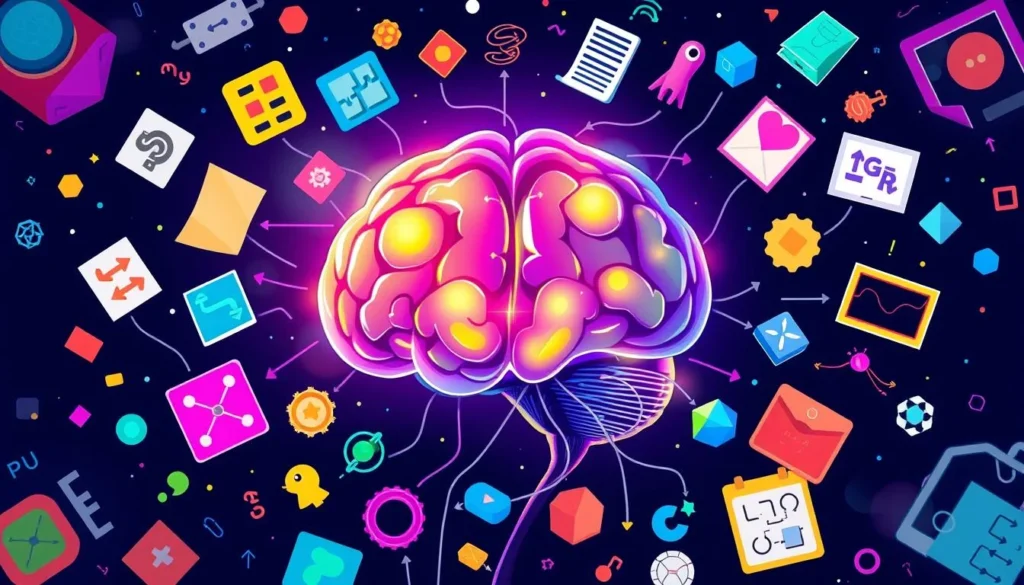
Brain training and mental exercises are key for better memory and thinking. Studies show that certain activities can make our brains stronger and fight off age-related decline.
Learning a new language is a great way to improve memory. It can even change the brain’s structure, helping to fight off cognitive decline. For students, typing notes is a smart way to remember information.
Chess can make young students better at math and thinking. Just 25-30 hours of chess training can make a big difference. For older adults, playing bridge can boost working memory and reasoning.
Digital brain games are also promising. The dual n-back game, played for 16 sessions, can improve working memory. Web-based crossword puzzles are better than other online games for people with mild cognitive impairment.
| Activity | Cognitive Benefit | Target Age Group |
|---|---|---|
| Learning a new language | Increased neural reserve | All ages |
| Typing notes | Enhanced memory retention | 13-18 years |
| Chess instruction | Improved math and cognitive ability | Primary and middle school |
| Bridge | Better working memory and reasoning | 55-91 years |
| Dual n-back game | Enhanced working memory | Adults |
Adding these brain exercises to your daily routine can greatly help your memory and thinking. Regular practice is essential to get the most out of these mental exercises.
Mindfulness and Meditation for Brain Enhancement
Mindfulness and meditation are becoming more popular. They help improve mental clarity and reduce stress. Studies show they can also boost cognitive function and brain health.
Different Types of Meditation Practices
There are many meditation types, each with its own benefits. Some include:
- Mindfulness meditation
- Transcendental meditation
- Loving-kindness meditation
- Body scan meditation
Benefits of Regular Meditation
A study with 90 students aged 18-25 found big improvements in memory. After just 8 minutes of mindfulness meditation, their memory got better. This was more than the control groups.
Another study lasted 6 months. It showed meditation can have lasting cognitive benefits:
- 88% of participants finished the study
- Memory and cognitive performance improved at 3 months (p ≤ 0.04)
- Benefits were maintained or improved at 6 months (p ≤ 0.006)
- Medium to large effect sizes in cognitive tests
Getting Started with Mindfulness
Here’s how to start your mindfulness journey:
- Find a quiet space
- Set aside 5-10 minutes daily
- Focus on your breath
- Observe thoughts without judgment
- Gradually increase practice duration
Adding mindfulness to your daily routine can improve mental clarity and reduce stress. It can also boost cognitive function. Start small and stay consistent for long-term benefits.
Physical Activities That Boost Brain Power
Exercise is more than just keeping your body fit. It also boosts your brain power. Studies show that exercise increases blood flow to the brain. This helps improve memory and how much you can remember.
Brain-derived neurotrophic factor (BDNF) plays a big role. It’s made more when you exercise, helping your memory. Exercise also lowers stress receptors in the hippocampus, which is key for memory.
The “runner’s high” is not just a feeling. It’s linked to endorphins, which can lower anxiety and depression. This mental boost works well with the physical benefits, making you feel better overall.
- Dancing engages brain areas involved in rhythm and balance
- Swimming improves memory, planning, and organization skills
- Cycling enhances cognitive function and motor coordination
Adding different physical activities to your routine can make your brain stronger. Remember, being consistent is important. Even short daily workouts can make a big difference over time.
“Physical activity is not just a path to a healthier body, but a gateway to a sharper mind.”
By focusing on exercise for brain health, you’re investing in your brain’s future. Start with small steps, stay consistent, and see your mental clarity and memory get better along with your physical health.
Strategic Games and Puzzles for Mental Fitness
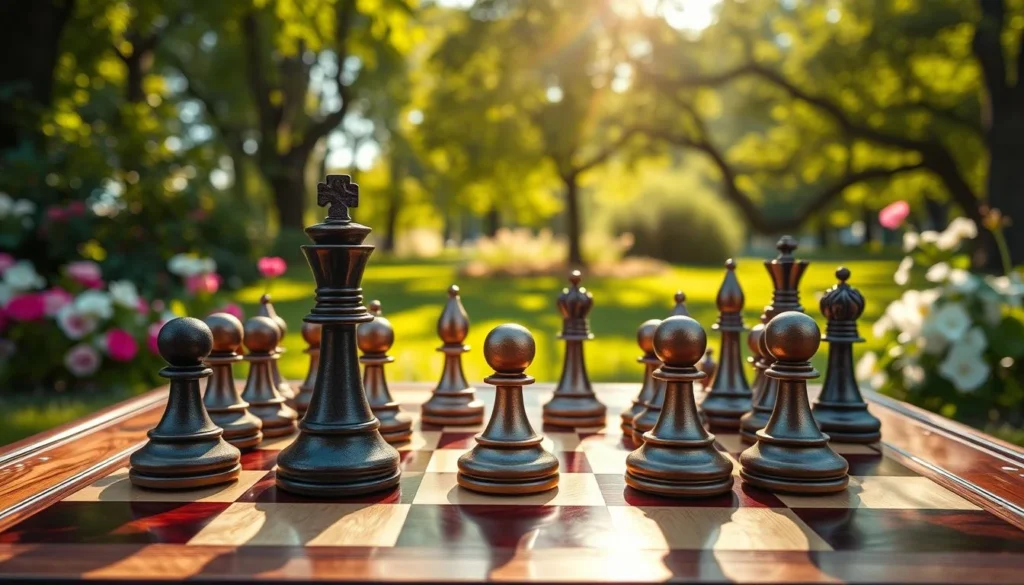
Brain games and puzzles are fun ways to improve your thinking skills. They offer exciting challenges that make your mind sharper. Let’s look at some popular games that can boost your mental fitness.
Chess and Critical Thinking
Chess is a top brain exercise. It enhances memory, boosts brain function, and sharpens strategic thinking. Players often notice better attention and problem-solving skills.
Chess has countless move combinations. This keeps your mind active and engaged.
Crossword Puzzles and Vocabulary Enhancement
Crossword puzzles are more than just fun. They’ve been shown to help delay memory decline. These word games improve verbal skills, expand vocabulary, and boost comprehension.
Regularly solving crosswords keeps your mind sharp. It also polishes your language skills.
Sudoku for Logical Reasoning
Sudoku is a unique brain challenge. It enhances critical thinking and concentration. It also improves logical reasoning and pattern recognition.
For the best results, solve Sudoku with pen and paper. This method engages your brain more than digital versions.
| Game | Cognitive Benefits |
|---|---|
| Chess | Memory, strategic thinking, attention span |
| Crosswords | Verbal skills, vocabulary, memory |
| Sudoku | Logical reasoning, concentration, pattern recognition |
Adding these games to your routine can offer big cognitive benefits. They provide a fun way to keep your brain sharp. Remember, being consistent is key to enjoying these brain-boosting activities.
Learning New Skills as Brain Exercise
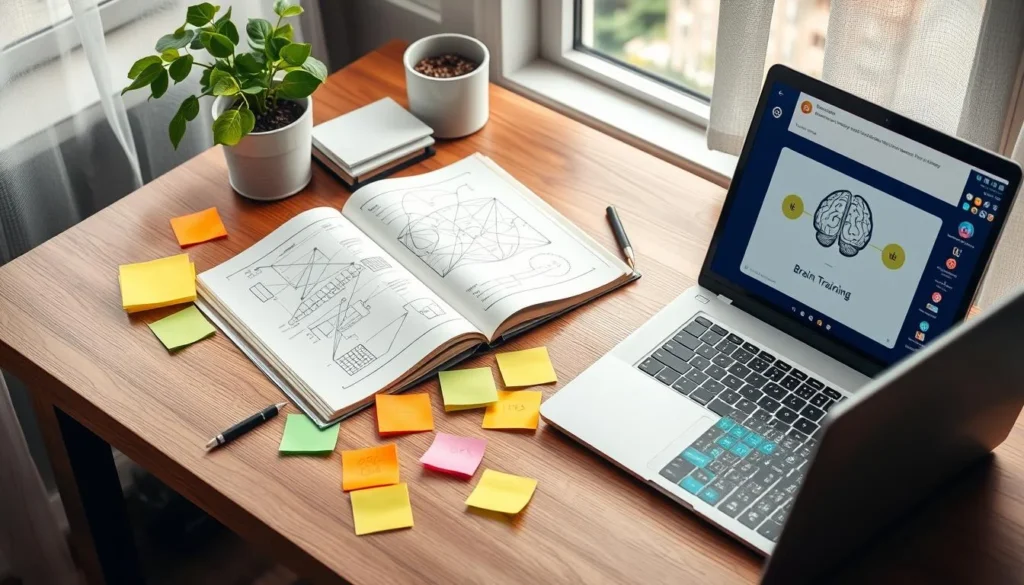
Learning new skills is a great way to keep our brains sharp. It helps us grow and learn all our lives. Studies show that it boosts brain function, which is good for older adults.
One study found that adults aged 60 to 85 who learned to play the piano did better in memory and thinking. This shows how important it is to challenge our brains with new things as we age.
Learning a new language is also great for the brain. It improves skills like:
- Attentional switching
- Functional connectivity
- Inhibition
- Working memory
Trying different activities can really help our brain health. Here are some interesting facts:
| Activity | Cognitive Benefit |
|---|---|
| Daily Sudoku puzzles | Improved cognitive functioning in adults 50-93 |
| Regular card games | Better cognitive functioning in older adults |
| Chess | Enhanced math performance in schoolchildren |
| Frequent reading | Reduced risk of cognitive decline in adults 64+ |
By adding new skills to our daily lives, we support our brain health. This way, we keep our minds active and enjoy learning new things. It makes life more interesting and fulfilling.
Music and Arts for Cognitive Enhancement
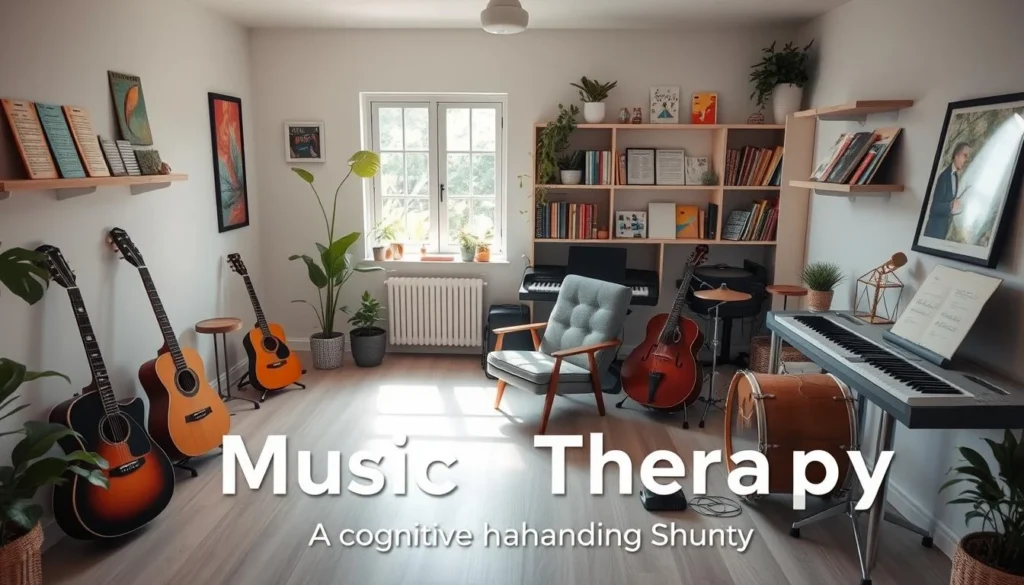
Creative activities like music and art are great for brain health. They help improve mental skills and overall well-being.
Benefits of Learning Musical Instruments
Playing a musical instrument is good for your brain. It makes you better at memory, coordination, and solving problems. Research shows musicians have more grey matter in their brains, helping with hearing and movement.
Dancing as Cognitive Exercise
Dancing is a mix of physical and mental work. It helps you remember steps, move well, and adjust to rhythm changes. Dancing can lower dementia risk and improve thinking in older people.
Visual Arts and Brain Stimulation
Visual arts like painting or drawing boost creativity and brain skills. They help with focus, spatial sense, and hand control. Art therapy also lifts mood and cuts stress, helping brain health.
| Activity | Cognitive Benefits | Brain Areas Stimulated |
|---|---|---|
| Playing an Instrument | Improved memory, coordination | Auditory cortex, motor cortex |
| Dancing | Enhanced balance, spatial awareness | Cerebellum, hippocampus |
| Visual Arts | Increased creativity, fine motor skills | Visual cortex, prefrontal cortex |
Adding these activities to your life can really help your brain. Whether it’s music, art, or both, it’s a fun way to keep your brain sharp.
Social Interaction and Brain Health
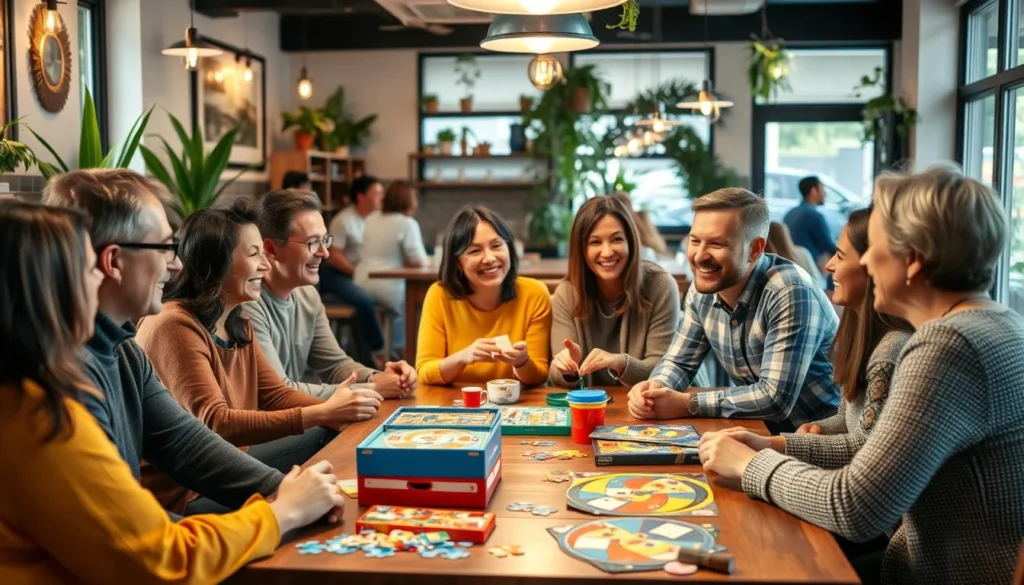
Social engagement is key to keeping our minds sharp and feeling good. Studies show that those who stay connected with others are less likely to lose their memory or get dementia. Let’s look at how being social helps our brains and health.
Research finds that talking to others lights up parts of our brain linked to feelings, empathy, and connection. This sparks the release of happy chemicals like oxytocin and dopamine. Strong social bonds can even shield us from losing our memory, lowering the risk of Alzheimer’s.
Social activities are great for our brains:
- Having meaningful discussions
- Playing games with friends
- Participating in social sports
- Joining clubs or community groups
- Volunteering for local causes
These activities keep our brains active, build new connections, and boost our thinking skills. They also offer emotional support, lowering stress and creating a healthier brain space.
| Social Engagement Benefits | Impact on Brain Health |
|---|---|
| Reduced risk of cognitive decline | 50% lower risk of dementia in socially active older adults |
| Improved cardiovascular regulation | Decreased risk of neurodegenerative diseases |
| Enhanced cognitive reserve | Better ability to cope with brain damage or pathology |
| Increased longevity | Socially connected individuals tend to live longer |
To enjoy these benefits, plan quality time with loved ones, get involved in your community, and use tech to stay in touch. Remember, building strong social bonds is not just fun – it’s crucial for our brain health and happiness.
Movement-Based Mind-Body Practices
Mind-body exercises are great for your brain. They mix physical activity with mental focus. This combo is key for brain health.
Tai Chi for Mental Clarity
Tai Chi is an ancient Chinese practice. It’s good for your brain. Studies show it can make your brain bigger and better.
When you do Tai Chi, your heart beats at 121 beats per minute. This helps your brain work better.
Yoga for Brain Function
Yoga is another mind-body exercise. It combines poses, breathing, and meditation. It’s good for memory, even in older adults.
Benefits of Regular Practice
Doing mind-body exercises regularly is very beneficial. A big study looked at 332 studies. It found these exercises greatly improve brain function.
They are more effective than just exercising. They have a bigger impact on your brain.
- Improves attention and memory
- Enhances executive function
- Boosts response ability
- Delays brain function decline
More than 10% of U.S. adults try these exercises. They are a great way to keep your brain sharp. They mix physical activity with mental focus for better brain health.
Sleep and Its Impact on Cognitive Function
Sleep is key for brain health and thinking skills. Studies show that good sleep helps our brains work better. Adults need 7-9 hours of sleep each night for the best brain function.
A study with 41 healthy people showed yoga nidra improved their thinking. They got faster and more accurate in their brain tasks. They also slept better and did well in learning and memory tasks.
Good sleep habits help keep our minds sharp. Sleep problems like insomnia or sleep apnea can raise dementia risk by 19%. By 2040, almost 12 million Americans might have dementia, making sleep very important.
“Quality sleep is not a luxury, but a necessity for brain health and cognitive function.”
To get better sleep:
- Stick to a consistent sleep schedule
- Create a relaxing bedtime routine
- Limit screen time before bed
- Ensure your bedroom is dark, quiet, and cool
- Avoid caffeine and alcohol close to bedtime
By focusing on sleep, you help your brain stay sharp. A well-rested mind is a sharp mind!
Digital Brain Training Apps and Games
Brain training apps and online brain games are becoming more popular. They aim to improve mental skills through fun activities and puzzles.
Effectiveness of Brain Training Programs
Studies on brain training apps show mixed results. A 2012 review of 151 studies found benefits in working memory and processing speed. Lumosity, used by over 100 million, claims daily sessions improve skills.
CogniFit Brain Fitness suggests 20-minute sessions, 2-3 times a week, for better results. Personal Zen, developed by researchers, can reduce anxiety with one session.
Choosing the Right Digital Tools
When picking brain training apps, look for:
- Variety of exercises
- Difficulty levels
- Progress tracking
- Scientific backing
Popular choices include Lumosity, Brain Trainer Special, and Fit Brains Trainer. Lumosity has 40+ activities in many languages. Fit Brains Trainer offers over 360 games. Brain Trainer Special for Android has games for all skill levels.
| App | Features | Pricing (USD) |
|---|---|---|
| Lumosity | 40+ activities, multiple languages | $11.99/month or $59.99/year |
| CogniFit Brain Fitness | 20-minute sessions, 2-3 times weekly | Varies |
| Fit Brains Trainer | 360+ games and puzzles | Varies |
While digital tools are convenient, traditional methods like books and puzzles offer similar benefits. The most important thing is to keep your mind active, no matter the method.
Conclusion
Adding brain exercises to your daily routine can really help your memory and thinking skills. To improve brain health, it’s important to adopt habits that keep your brain active. This can include everything from physical activities to mental challenges.
Research shows that exercise is great for your brain. It can make your hippocampus bigger in older adults, which helps with memory. Even a small increase in hippocampal volume from exercise can be beneficial.
Starting your journey to better brain health is exciting. Remember, being consistent is crucial. Try activities like mindfulness, playing games, and talking to people to boost your brain. By doing these things every day, you’re not just making your brain better. You’re also setting yourself up for a healthier, happier future.
Source Links
- Brain exercises: 22 ways to improve memory, cognition, and creativity – https://www.medicalnewstoday.com/articles/brain-exercises
- 5 Exercises That Can Keep Your Brain Sharp – https://www.aarp.org/health/brain-health/info-2022/workouts-for-brain-health.html
- Physical Activity Boosts Brain Health – https://www.cdc.gov/physical-activity/features/boost-brain-health.html
- Brain Exercises: 13 Ways to Boost Memory, Focus, and Mental Skills – https://www.healthline.com/health/mental-health/brain-exercises
- Exercising is good for the brain but exercising outside is potentially better – Scientific Reports – https://www.nature.com/articles/s41598-022-26093-2
- 9 Brain Exercises for Mental Sharpness – https://psychcentral.com/health/brain-exercises
- Dr. Fotuhi | Best Neurologist | Author | Speaker – http://neurogrow.com/brain-exercises-to-improve-memory/
- Mindfulness Meditation Improves Visual Short-Term Memory – https://pmc.ncbi.nlm.nih.gov/articles/PMC8242403/
- Meditation and Music Improve Memory and Cognitive Function in Adults with Subjective Cognitive Decline: A Pilot Randomized Controlled Trial – https://pmc.ncbi.nlm.nih.gov/articles/PMC7967907/
- How exercise affects the brain – https://lifesciences.byu.edu/how-exercise-affects-your-brain
- No title found – https://www.summahealth.org/flourish/entries/2022/01/exercising-your-brain-6-ways-to-build-mental-fitness
- 10 Puzzles and Games to Give Your Brain a Workout – https://www.healthline.com/health/mental-health/games-and-puzzles-to-exercise-your-brain
- The Ultimate Guide to Brain-Training Games – BrainHealth Solutions – https://www.brainhealth-solutions.com/the-ultimate-guide-to-brain-training-games/
- Brain Exercises to Train Your Cognitive Abilities – https://www.verywellhealth.com/brain-exercises-8698291
- This training exercise boosts brain power, Johns Hopkins researchers say – https://hub.jhu.edu/2017/10/17/brain-training-exercise/
- Exercises and Tips to Boost Cognitive Function – King-Bruwaert House – https://www.kingbruwaert.org/exercises-and-tips-to-boost-cognitive-function/
- Using Music During Instruction to Support Cognition – https://www.edutopia.org/article/using-music-support-deeper-learning/
- How Music Can Improve Your Memory and Concentration – Twelvetone – https://www.twelvetonemusicschool.com/how-music-can-improve-your-memory-and-concentration/how-music-can-improve-your-memory-and-concentration/
- How musical training affects cognitive development: rhythm, reward and other modulating variables – https://pmc.ncbi.nlm.nih.gov/articles/PMC3957486/
- The Impact of Social Connections on Brain Health: Nurturing Relationships for Cognitive Well-being – Countryside Neurology – https://countrysideneurology.com/the-impact-of-social-connections-on-brain-health-nurturing-relationships-for-cognitive-well-being/
- Social Connection and Brain Health – https://depts.washington.edu/mbwc/news/article/social-connection-and-brain-health
- Mind body exercise improves cognitive function more than aerobic- and resistance exercise in healthy adults aged 55 years and older – an umbrella review – https://www.ncbi.nlm.nih.gov/pmc/articles/PMC10413530/
- Frontiers | Effects of mind-body exercises on cognitive impairment in people with Parkinson’s disease: A mini-review – https://www.frontiersin.org/journals/neurology/articles/10.3389/fneur.2022.931460/full
- Activity, Sleep & Dementia | Hopkins Bloomberg Public Health Magazine – https://magazine.publichealth.jhu.edu/2024/activity-sleep-dementia
- Ancient exercise shown to improve sleep and memory – https://www.newsweek.com/yoga-nidra-memory-sleep-cognition-1852152
- Lumosity: Brain Training – Apps on Google Play – https://play.google.com/store/apps/details?id=com.lumoslabs.lumosity
- 10 best apps to train your brain | CNN – https://www.cnn.com/2014/09/09/health/brain-training-apps/index.html
- The Influence of Exercise on Cognitive Abilities – https://pmc.ncbi.nlm.nih.gov/articles/PMC3951958/
- Effects of Physical Exercise on Cognitive Functioning and Wellbeing: Biological and Psychological Benefits – https://pmc.ncbi.nlm.nih.gov/articles/PMC5934999/
- Frontiers | Exercise Training Improves Memory Performance in Older Adults: A Narrative Review of Evidence and Possible Mechanisms – https://www.frontiersin.org/journals/human-neuroscience/articles/10.3389/fnhum.2021.771553/full

